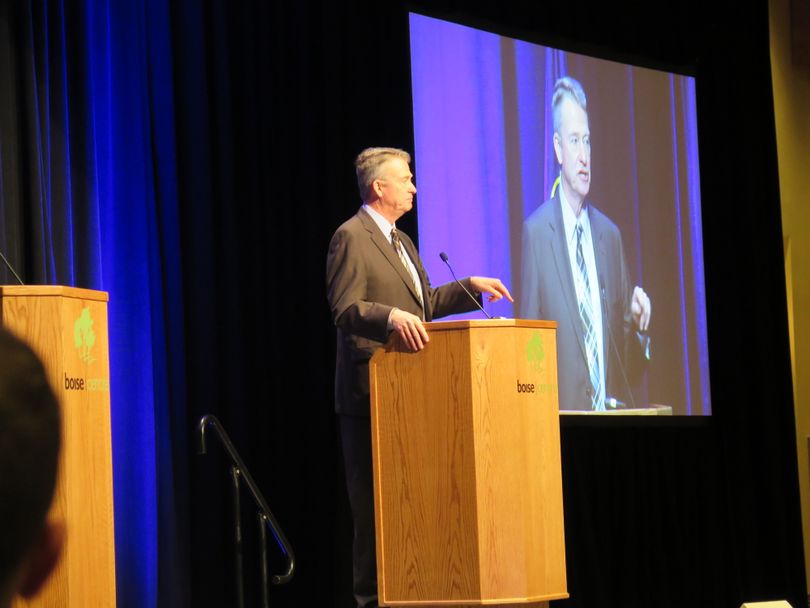Little on taxes: ‘I’ve got a concrete plan because I’ve been here, I’ve listened’

Idaho Lt. Gov. Brad Little told the Associated Taxpayers of Idaho today that his family is a charter member of the group, going back to the 1940s. Asked by moderator Dee Sarton about the specific tax proposals he’s unveiled during his campaign for governor, Little said, “Part of the reason that I’ve got a pretty concrete plan is that I’ve been here, I’ve listened.”
Little said he’s attended the taxpayer group’s conference for many years. “I may be a little odd, but for some reason I enjoy tax policy,” he said. “Perhaps it’s because I’ve spent so much time at this conference and other ones.”
Little said, “Today, Idaho is the envy of most of the states in the union. … We’re one of the fastest-growing states. … Our balance sheet is the envy of most states.”
He noted, “I have already published my Idaho Grown Jobs Plan, my health plan and my tax plan. Let me go over the details of my tax plan.”
First, he said, he’d like to lower income taxes by $350 million, on an incremental basis over the years that is dependent on also fulfilling commitments to education, to saving in a rainy-day fund, and to growing the economy. Secondly, he said, “Eliminate the grocery tax once and for all.” And, he said, “Mandate that all new exemptions be linked to a proportional reduction. … That continual process, that will be an additional barrier to adding on to the current list of exemptions.”
“A no-brainer, obviously, is the unemployment tax, which Nathan talked about a little bit ago,” Little said; the proposal that Gov. Butch Otter made unsuccessfully this year would save employers $115 million over three years. “I expect to see that early on within this session, but if it isn’t, it will happen when I’m governor,” he said.
Plus, “Increase the personal property tax exemption to $250,000 … and that’s it. That gives certainty to the business community, and gives certainty to the counties that are” particularly dependent on that business equipment tax for their budgets. He also called for giving counties the option to eliminate that tax if they choose.
“My tax policy is the result of my years being in this room with you good people, and thank you very much,” Little said.
Asked about the tax-cut bills that have been passed by the U.S. House and Senate, Little said, “Overall I think it’s a good thing, but I am concerned about what the impacts may be to the deficit.”
